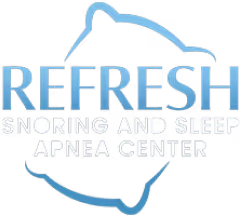Sleep is an essential component of human life, crucial for overall well-being. It helps you rejuvenate and prepare you to face the day's challenges. However, for many individuals and their partners, a peaceful night's sleep can be marred by a common issue known as sleep apnea. Understanding what is sleep apnea is the first step to addressing the condition.
In this article, we delve into understanding sleep apnea, its potential health risks, and, most importantly, how to prevent it, ensuring a healthier and snore-free sleep.
Understanding Sleep Apnea Better
Sleep apnea is defined by intermittent pauses in breathing, lasting seconds to minutes and happening repeatedly during the night. The word "apnea" signifies the absence of breath.
The most common sleep apnea type is obstructive sleep apnea (OSA), which results from an over-relaxation of throat muscles, causing temporary closure or narrowing of the airway.
Central severe sleep apnea emerges due to insufficient brain signals to the respiratory muscles. Complex sleep apnea syndrome involves elements of both obstructive and central sleep apnea.
Risk Factors of Sleep Apnea
Sleep apnea can impact anyone, but specific risk factors heighten an individual's vulnerability. Excess weight, mainly when fat accumulates around the neck, can cause sleep apnea by blocking the airway during sleep.
A thicker neck, a potential risk factor, can lead to narrower airways, increasing the susceptibility. While sleep apnea tends to affect more men than women, the risk for women escalates, mainly when they are overweight or undergoing hormonal changes like menopause. Although more common in older adults, signs of sleep apnea are not limited by age.
A family history of sleep apnea can compound an individual's risk, and lifestyle choices like smoking and alcohol consumption contribute significantly. Smoking induces airway inflammation and fluid retention, while alcohol prompts the relaxation of throat muscles.
Additionally, nasal congestion stemming from anatomical issues or allergies poses an elevated risk.
Various medical conditions, such as hypertension, heart disorders, and type 2 diabetes, have demonstrated an association with an increased risk of sleep apnea.
What Happens if Left Untreated
Leaving sleep apnea untreated can profoundly affect health and overall quality of life. Symptoms of sleep apnea often include excessive daytime sleepiness, impairing cognitive function, and introducing risks during activities such as driving.
Furthermore, it is associated with severe cardiovascular issues, encompassing high blood pressure, heart attacks, and strokes, which could potentially become life-threatening. Sleep apnea also heightens the risk of type 2 diabetes, primarily due to insulin resistance.
Moreover, mood disorders, including depression and irritability, are commonly observed among sleep apnea patients. The condition can strain relationships, stemming from loud snoring and sleep disruptions. Sleep apnea typically leads to a diminished quality of life, impacting daily functioning and overall well-being.
Treatment for Sleep Apnea
Thankfully, there are practical approaches to prevent or alleviate sleep apnea, lessening its severity and impact. Weight management is paramount, especially when excess weight is a contributing factor. Achieving weight loss through a balanced diet and consistent exercise can significantly alleviate sleep apnea.
Improve Sleep Position
Sleep position plays a pivotal role, as sleeping on one's back increases the risk of tongue and soft palate collapse, leading to airway obstruction. In contrast, sleeping on your side can mitigate this risk. Specialized pillows and sleep aids are also available to maintain the ideal sleeping position.
Make Significant Lifestyle Changes
Aside from sleep apnea devices, it’s also best to make lifestyle changes. Significantly improving sleep apnea symptoms can be achieved by reducing or eliminating alcohol consumption and quitting smoking, as both these habits can contribute to the condition.
Effectively managing allergies or sinus infections and incorporating humidifiers can help maintain open nasal passages, preventing potential blockages.
Stay Hydrated
Additionally, proper hydration is essential. Dehydration can cause throat mucus to become sticky, increasing the likelihood of snoring. Staying well-hydrated throughout the day, particularly in the hours leading up to bedtime, is vital.
Maintain a Consistent Sleep Schedule
Establishing a consistent sleep schedule significantly regulates the body's internal clock, known as the circadian rhythm. Another sleep apnea self-care routine to observe is sleeping and waking simultaneously daily, which can improve sleep quality, reduce snoring, and ensure that individuals are refreshed.
Prioritizing a whole night's sleep, aiming for seven to nine hours per night, is crucial for optimizing sleep quality and minimizing the risk of sleep apnea.
Manage the Risks With Refresh Snoring and Sleep Apnea Center
Remember to consider the importance of addressing sleep apnea for a healthier, more restful life. Take your well-being seriously and seek professional assistance from Refresh Snoring and Sleep Apnea Center.
Don't let sleep apnea disrupt your life. Learn what is sleep apnea and improve your sleep quality. Contact us now to embark on a journey toward better sleep and improved health. Your body and sleep partners will be grateful.

.svg)




